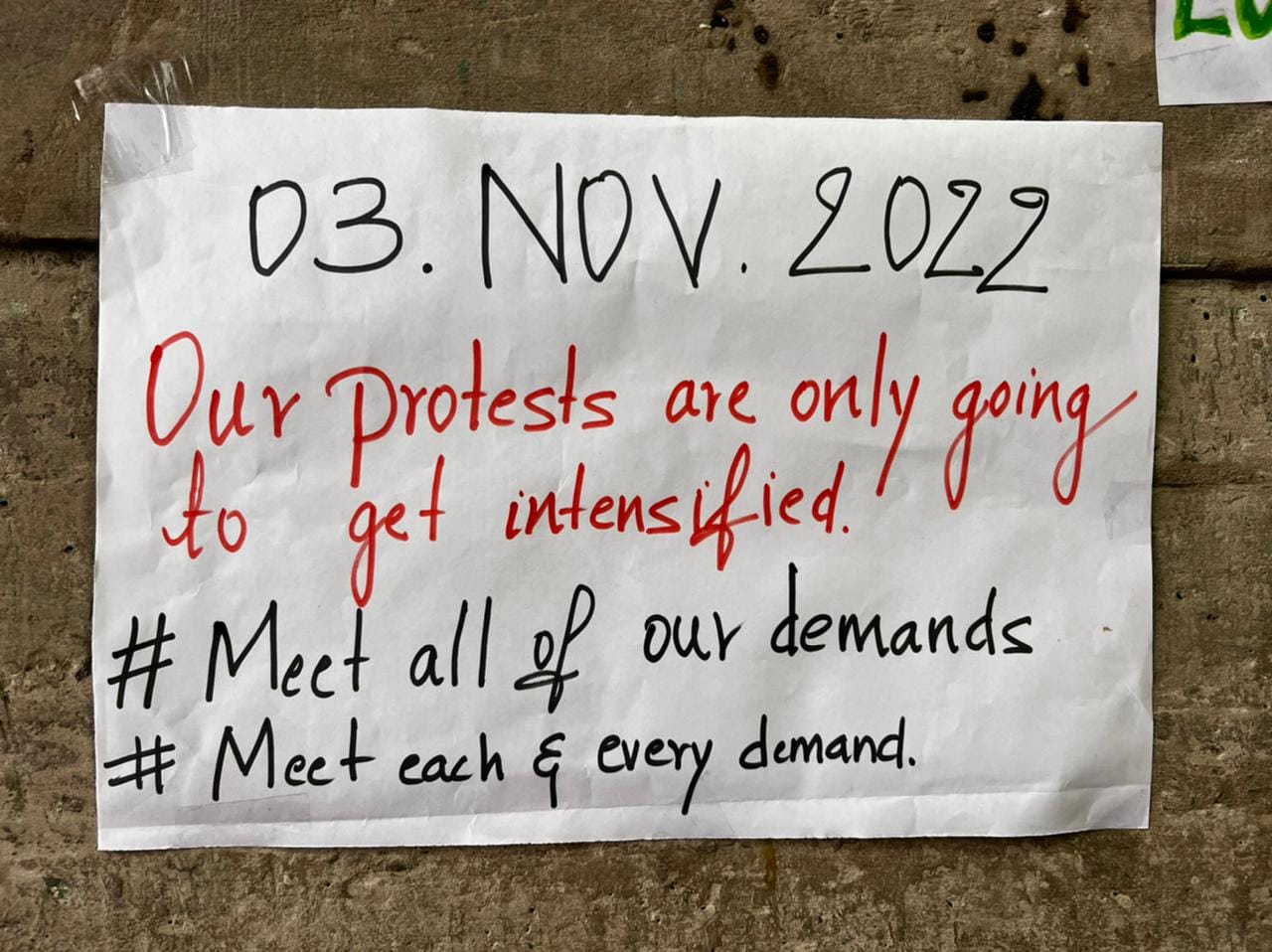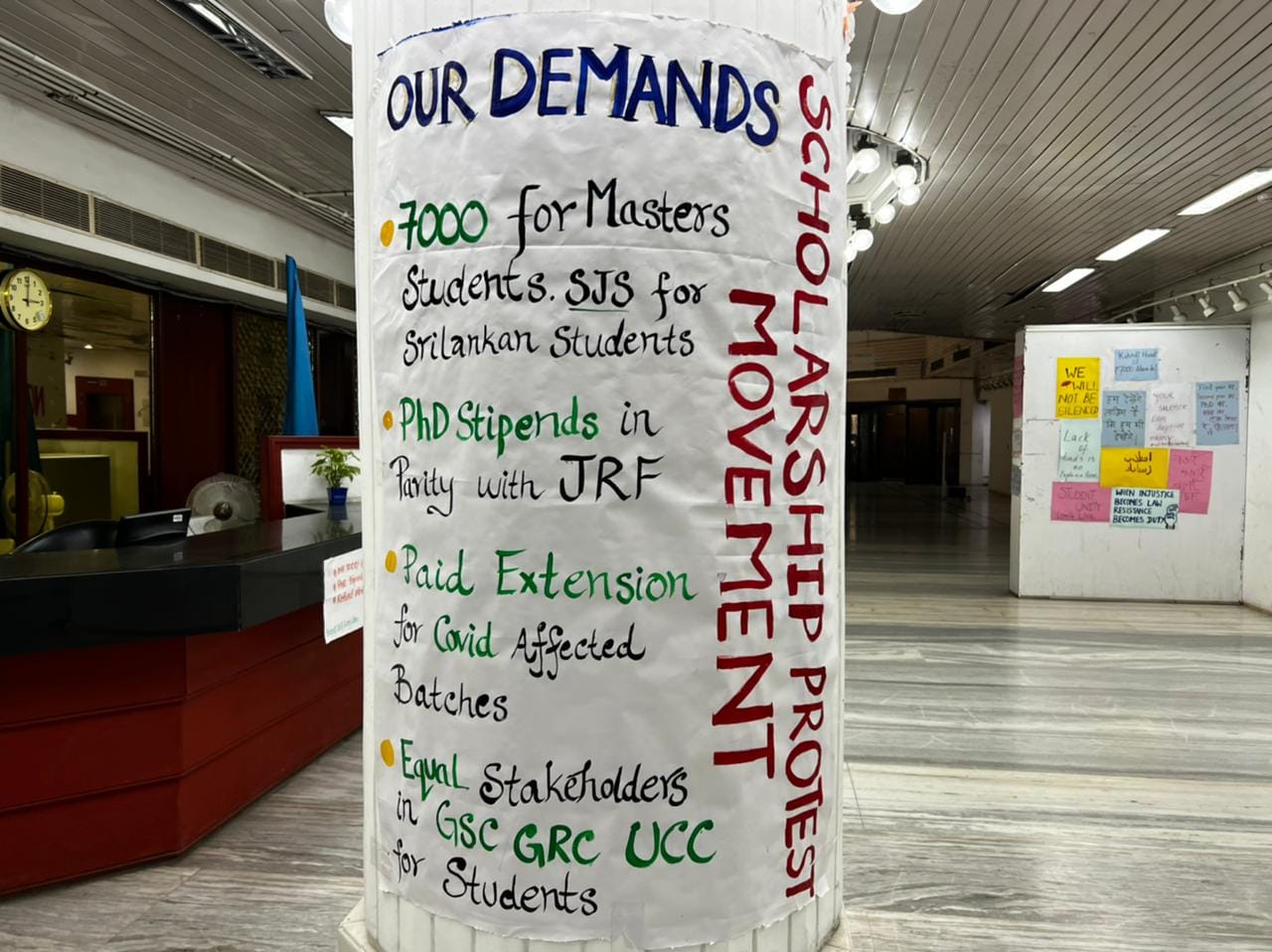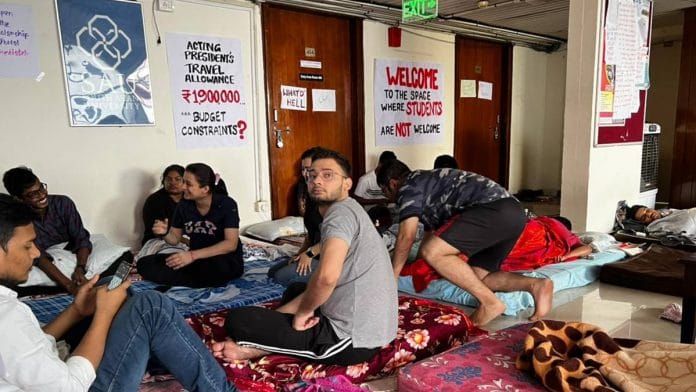New Delhi: Classes at the South Asian University (SAU) in Delhi have been suspended since 13 October in the wake of an ongoing standoff between students and the university administration.
Students of the SAU — an international university established under the South Asian Association of Regional Cooperation (SAARC) — have been demanding, among other things, higher stipends and adequate representation in redressal committees.
Also, among their demands is extending the university’s Silver Jubilee Scholarship to Sri Lankan students. The scholarship is currently offered to master’s and doctoral students from the least developed countries of the region, such as Afghanistan, Bhutan, Bangladesh, the Maldives, and Nepal.
Established in 2010 by eight SAARC member nations — Afghanistan, Bangladesh, Bhutan, India, Maldives, Nepal, Pakistan, and Sri Lanka — SAU currently offers post-graduate and doctoral programmes in various disciplines, including economics, computer science, biotechnology, mathematics, sociology, international relations, and law.
Student representatives told ThePrint that, so far, four meetings have been held between students and the university administration but no resolution has been reached.
On its part, the SAU administration, in a written response to ThePrint, said the university had “quickly responded to the Charter of Demands submitted by the students by agreeing to almost all demands that were under the purview of the Acting President”.
“However, the students revised their demands after that and (have been) pressing the current administration to further increase the stipend and scholarship, which cannot be done unless they are approved by the Governing Board,” the university said.
The SAU also said that the university has consistently been asking the protesting students to allow the offices of the president and vice-president to function, “but they have not been listening to any such attempts of the University Administration”.
“Any demand that requires [a] change of the policy document cannot be met, as is the norm everywhere, without the consent of the apex body of the University, the Governing Board,” the university wrote.
However, the governing body meeting, which has representatives from all SAARC nations, was last held in 2017 “because of logistical issues”, the university administration told ThePrint, adding that the “administration is in touch with the chairman of the governing council for decisions”.
With no governing body meeting held in the past five years, the university administration has been taking the day-to-day decisions.
Also Read: ‘Bid to quell protests’ — Chandigarh campus tense as classes cancelled for a week after ‘video leak’
Face-off between students and university
On 1 November, students began an indefinite sit-in protest, demanding an increase in monthly stipend for the master’s and doctoral programmes. They have also been demanding better representation, not only for students but for SAU’s social sciences departments.
Students said that they want the stipend for the university’s Merit Scholarship to be increased to Rs 7,000. Additionally, they also want every student with a family income of under Rs 500,000 to be offered a freeship — that is, a full scholarship — in addition to a stipend.

The university cut stipends for its master’s programmes — from Rs 4,000 to Rs 5,000 — when its academic year began in August, but this was reinstated after protests started in October, the university said.
Around 50 protesters currently occupy the lobby of the administrative floor of the university, with eight among them on a hunger strike. Many others join the protest as and when they can.
The protests took an ugly turn on 4 November, when the university brought in the riot police to help disperse the crowd.
Two students were expelled after this incident, while three were placed under suspension — two for the entire academic year and the third until the end of the semester, students told ThePrint.
The university cited continued “indisciplined behaviour” justifying its action.
However, Bhimraj M., a third-year PhD student told ThePrint, “Prof. Anup Mitra (economics department), who was the proctor of the university, resigned from the position on 3 November in solidarity when he was asked to take police action against the protesting students.”
‘Overlooked’ social sciences
Students have claimed that the university’s social sciences departments are consistently overlooked, with its faculty frequently sidelined for the university’s administrative positions.
According to Bhimraj, the departments are particularly overlooked when it comes to the various grievance redressal committees.
“Our current president, vice-president and registrar are [all] from the science department. Most of the committees, too, are constituted by them,” Bhimraj told ThePrint.
Discontent has been brewing among the university’s faculty for some time. On 12 May, Ravi Kumar, chairperson of the department of sociology, had resigned from his position citing administrative problems.
Days later, on 25 May, Sasanka Perera, dean of the faculty of social sciences, quit after the position of the university’s acting registrar went to a professor of the science departments.

The university said in its response that “when all such offices were held by non-science officials” in the past, it was not an issue.
“Appointing Vice-President and Registrar is the prerogative of the President,” the university said in its response, and that “many non-science faculty members were offered certain administrative positions, but they didn’t come forward to take up the responsibility”.
Another allegation levelled by the students is that the university didn’t have internal mechanisms, such as a sexual harassment committee, until 2022. When it was finally put in place, the students claim, it was done “arbitrarily”, without consultation.
To this, the university said that it had a Gender Sensitisation Committee (GSC), “which looks into cases of sexual harassment, and it has been continuously functioning since its initial constitution [in 2011-12]”.
“The committee routinely gets reconstituted after the term of the committee members gets over,” the university told ThePrint.
(Edited by Uttara Ramaswamy)
Also Read: To tackle incidents like Chandigarh University one, India needs to regulate social media






